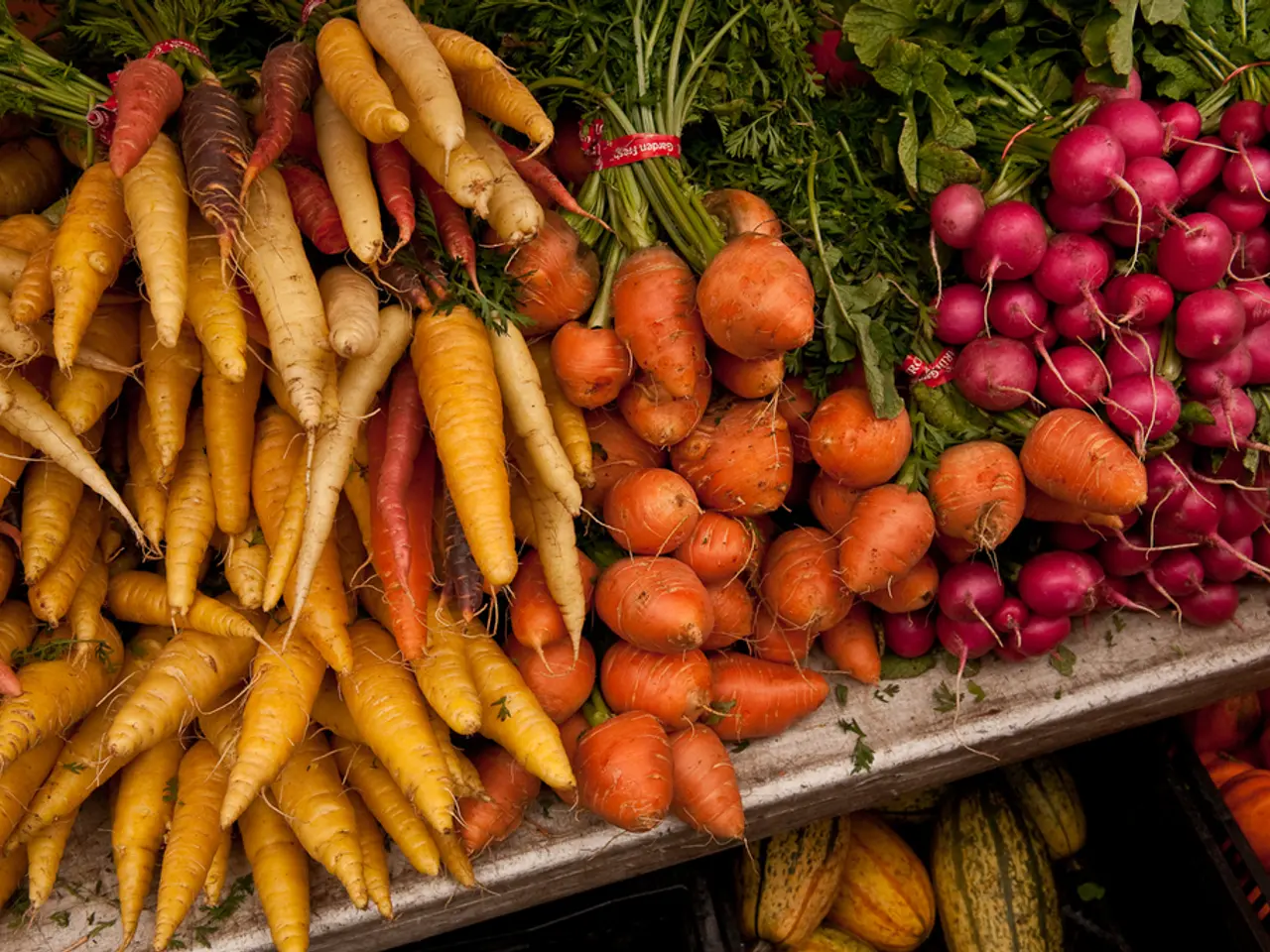Preparing Soil Essential Before Cultivating Vegetables?
In the world of gardening, preparing the soil for planting is a crucial step in ensuring healthy plant growth. One common practice is turning over, or tilling, the soil before planting vegetables. This process offers several advantages that contribute to a thriving garden.
Firstly, tilling aerates the soil, improving oxygen availability for roots and microbes. This is essential for plants to grow strong and healthy, as oxygen is vital for the breakdown of nutrients in the soil.
Secondly, tilling incorporates organic matter, fertilizers, and amendments more thoroughly and evenly into the soil. Organic matter, such as compost, aged manure, or leaf mould, not only improves the soil's fertility but also aids in bonding soil particles together, enhancing its structure.
Tilling also breaks down large clumps and organic debris, making nutrients more accessible for plants. This is particularly beneficial as it allows microbes and plant roots better access to these essential nutrients.
Another advantage of turning over soil is that it warms the soil faster in the spring, promoting earlier and more vigorous plant growth. As the sun and air penetrate more easily, the soil warms up, stimulating plant growth.
Improved drainage is another benefit of tilling. By loosening soggy soil, the risk of waterlogging is reduced, preventing root rot and other water-related problems.
Lastly, turning over soil improves the soil's structure, making it less compacted. This allows roots to grow and absorb water and nutrients efficiently. A healthier soil structure supports better root development and facilitates positive microbial activity, all of which promote stronger, more productive vegetable plants.
However, it's worth noting that some no-till approaches emphasize minimal soil disturbance to conserve moisture and maintain soil organisms. These methods may be more specific to certain climates or gardening philosophies.
For traditional vegetable gardening, turning over soil remains an effective way to prepare the growing medium for planting and improve plant health by optimizing soil conditions.
To ensure the soil is rich in nutrients, soil test kits can be used to determine the nutrient levels in the soil, including nitrogen, phosphorus, potassium, and pH level. Based on the results, the necessary amendments can be added to the soil, such as lime to raise the pH or sulfur to lower it.
In conclusion, turning over soil offers numerous benefits for vegetable gardening, from improving soil aeration and structure to enhancing water retention and nutrient availability. By following this practice, gardeners can create a favorable environment for their vegetables to grow vigorously and yield well.
A lifestyle that involves home-and-garden activities like gardening can significantly improve soil health. Tilling the soil before planting not only aerates it for better oxygen access, but also homogenizes organic matter, enhancing soil fertility and structure.
gardeners can optimize soil conditions for their vegetable plants by employing tilling techniques, which not only break down organic debris and improve drainage, but also warm the soil faster for stronger and healthier plant growth.




